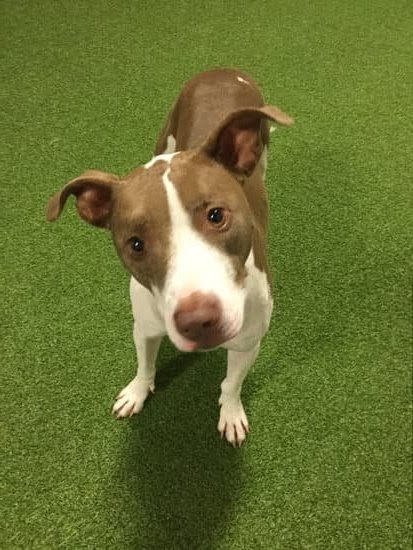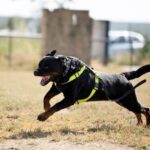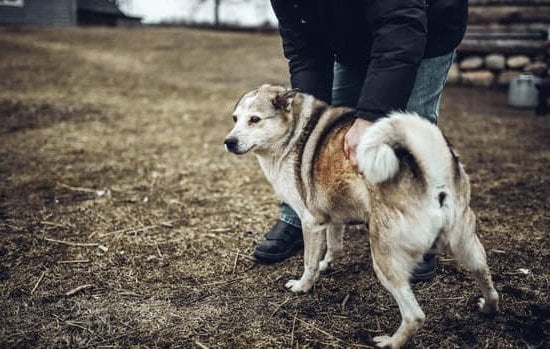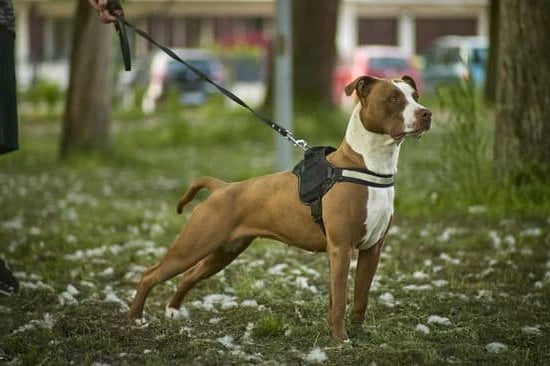Introduction
Dog training workshops provide an effective way to help owners learn how to best train and care for their pet. These workshops can offer assistance with obedience, basic commands, socialization, and problem-solving strategies that can be used in various types of situations. Dog owners gain valuable knowledge on beneficial dog behavior training techniques as well as insight into the unique behavioral needs of different types of breeds.
Depending on the workshop’s curriculum, participants may participate in theory-based classes or hands-on demos. Theory classes often explore topics such as positive reinforcement-based training methods and triggers for commonly seen negative behaviors. Hands-on demonstrations may focus on teaching specific commands like ‘sit’ or ‘stay’ and how a consistent routine can help in curbing undesirable dog behaviors. Dog owners typically leave a dog training workshop with a better understanding of proper reward systems for good behavior and the importance of using positive reinforcement during all canine interactions.
Workshops may also feature lectures from expert animal trainers and veterinarians who discuss general concerns related to nutrition, health, grooming and safety as part of the program. Additionally, some workshops will address mental stimulation games for dogs and evaluate when corrective training should be sought out from professional Canine Behaviorists when necessary.
Overall, dog training workshops are excellent resources that aim to equip owners with not only up-to-date knowledge but also practical advice on how they can effectively lead their furry friend towards good behavior while enjoying countless moments together!
Choosing the Right Workshop
When considering which dog training workshop to attend, there are several factors to take into account. First, it’s important to consider the specific needs of you and your pet. Do you want a more general overview of basic canine behavior and obedience techniques or would a focused instruction in one educational area such as agility or tracking be a better fit? Additionally, think about the level of instruction that is most suitable for the skill level of both you and your pet. If this is your first experience with dog training workshops, it may be beneficial to opt for a beginner-level class that assists with basics like leash walking or responding to simple commands. On the other hand, if you are experienced in dog obedience training then attending an advanced class can help move your skillset forward.
Next, take into account the satisfaction rating of any particular workshop or instructor before signing up. Read reviews from others who have attended in order to get a feel for how thorough and effective their instruction may be. Also pay attention to any certifications or awards individual trainer may have received; this speaks volumes about their skill and experience within their field. Lastly, make sure that any cost associated with attending a dog training workshop fits into your budget. Not all workshops are expensive but investigating costs ahead of time can help ensure that there aren’t any hidden fees or surprise bills afterwards.
Preparing Your Dog and Yourself for the Workshop
It’s important to take the time to prepare yourself and your dog for a dog training workshop. The last thing you want is to have a frustrated or overwhelmed animal during the session. This begins by talking to your dog’s veterinarian before signing up for the course and making sure he or she is in good health before beginning any kind of new activity. Also, be sure to research the trainer and their methods, ensuring it’s a good fit for you and your pup.
Once the day of the workshop arrives, make sure that both you and your pup are rested so that you’re both ready to learn. You should also familiarize your pup with basic obedience commands before coming into the session so that he or she already has a good understanding of what will be expected from them during the class. It would also be a great idea to arrive early so that you can meet with the instructor one-on-one, as well as introducing yourself and your pup to other participants in order to help ease anxiety levels. Additionally, remember to bring along treats (your pup will appreciate them!), toys, water bowls and anything else needed while in class. Lastly, never forget how important proper reinforcement is — learn how to reward your puppy through positive reinforcement techniques like treats and verbal praise right away!
The Workshop Experience
Dog training workshops are a fantastic opportunity for anyone interested in learning how to better train and care for their four-legged family member. Workshops usually consists of a team of experienced trainers and enthusiasts who share a passion for humanely training our canine friends. The goal of the workshop is to help you understand your dog’s behaviors and how to address common issues that may arise as your pup grows.
Prior to the workshop, you will likely receive an informational packet with details on what topics will be addressed. This way, you can come prepared with questions related to the subjects covered throughout the course, as well as any specific questions you may have about your pet. Additionally, many workshops involve active participation from class members so having some basic knowledge ahead of time is really beneficial.
During the workshop, you will be able to observe demonstrations of obedience exercises as well techniques to retrain any undesirable behavior in your own dog. Common issues discussed include proper leash walking, impulse control exercises such as “sit & stay” commands, developing confidence in new environments and properly socializing puppies with people and other dogs. For those just starting out in the world or dog training, workshopping provides an excellent foundation for handling your furry friend’s day-to-day needs – making life easier for everyone!
Workshops
Dog training workshops are a great way to learn how to effectively train your dog. The workshops will cover the fundamentals of dog training and provide an introduction to topics such as communication, behavior management, and problem-solving methods. They will help you understand your dog and teach you how to be an effective leader for them. Through a variety of activities, this class can help build the bond between you and your pup. You’ll learn tips for providing consistent guidance, patience, and understanding—all of which will strengthen the relationship between you and your furry friend. In addition, these workshops can also give advice on equipment, techniques, César Millán’s Calm assertive leadership style and basic obedience commands such as sit, stay and come when called. You can also learn about body mechanics for safety in different environments as well as prevention & management of aggressive behaviors through positive reinforcement. They will also cover appropriate games and activities that allow dogs to become mentally engaged in a fun way while learning key concepts that are essential for their development. Ultimately the goal is to empower owners with the necessary skills they need in order to have a successful companion dog that they both can be proud of!
Key Learnings from Attending Dog Training Workshops
Attending dog training workshops can be an invaluable experience for inexperienced and experienced dog owners alike. The knowledge gleaned from the workshops may help to improve your relationship with your dog and make both of you happy. Here are some key learnings that can be gained from participating in a dog training workshop:
1. Understanding canine behaviour – A good dog trainer will have in-depth knowledge about canine behaviour, body language and psychology, which is essential for any successful training session. Through attending such workshops, you will gain invaluable insight into different aspects of canine behaviour and pet ownership. You will also learn how to better communicate with your pooch without resorting to yelling or other forms of distraction methods.
2. Learning basic commands – You will learn basic commands that are crucial for your deployment journey with your pup e.g. sit, stay, come etc., as well as more advanced commands that can help reinforce learned behaviours at home or outside of the setting of the workshop.
3. Practicing routines – Dog training workshops provide an opportunity to practice what has been learned in real life scenarios alongside professional supervisors and other trainers who can offer advice and guidance if needed, thus helping to bolster confidence amongst all those involved and create a positive learning environment for everyone involved.
4. Using positive reinforcement – Dog training methods based on positive reinforcement provide optimum results when it comes to teaching good behavioural traits in our pets by reward them when they do something right rather than punishing them when they get something wrong so that learning becomes fun for both owner and pooch!
Implementation
Proper Dog Training Workshops are an effective way to teach owners how to use appropriate behavioral strategies for their dogs. These strategies include positive reinforcement techniques, clicker training and shaping behaviors. They allow for consistent, organized instruction for owners that make the process more enjoyable for both parent and pup.
Trainers in the workshop will be able to provide live demonstrations of these techniques with real-life examples that can be applied at home. During the workshop sessions, they may take attendees through various activities such as feeding exercises and basic obedience commands. In addition, trainers will help participants better understand their dog’s body language and explain the best methods of communication to maximize success in training. Through guided discussions, during which parents have time to ask questions, trainers will better be able to customize sessions based on individual needs.
In addition to instruction presented by trainers in the workshops, printed handouts or online resources with additional tips may be available which owners can revisit at home when needed. This helps reinforce learned behavior and encourages owners to stay consistent between private lessons or group sessions with their pup.
Challenges and Pitfalls to Consider
Dog training workshops can be an effective way to teach your canine companion new skills and behaviours. However, there are some challenges and pitfalls to consider before signing up. If the sessions are held indoors, there may be too many distractions from other dogs or people for your pup to retain the lessons. If you choose an outdoor setting, weather conditions could disrupt the training session or make it dangerous for your pup. Consider too the type of trainer running the workshop; a knowledgeable professional can help ensure better success for both you and your pet. It is also important to know what type of training method will be used during the workshop; a well-respected technique such as positive reinforcement will have better long-term results than punishment-based methods that may lead to behavioral issues down the road. Ultimately, choosing a dog-training workshop should involve careful consideration and research in order to find one that suits your pup’s needs best.
Maximizing the Benefits of Attending a Dog Training Workshop
Attending a dog training workshop provides pet owners with valuable information that can help them better understand their pup and improve its behavior. Dog training workshops offer a unique opportunity to gain knowledge about obedience commands, proper playtime techniques, reinforcement strategies, socialization tips, and the basics of canine psychology that can prove instrumental when managing your dog’s naughty or aggressive tendencies. Pet parents who attend these workshops will not only be equipped with the necessary tools to restrain unruly behavior but also obtain advice on how to positively reinforce good habits in their pups.
Moreover, attending a dog training workshop grants pet parents the chance to bond with their pup by providing an environment separate from home that is conducive for learning. You will be able to observe how other people interact with their dogs and compare techniques used. Additionally, being in close proximity to other pets will help facilitate socialization skills which are vital for your pup’s development and safety in public areas. Understanding commands like “Sit” or “Stay” is beneficial when teaching a puppy boundaries while around other people and animals they may encounter. Furthermore, working in tandem with professional trainers at a workshop allows you to reap the full benefits of constructive feedback throughout the session, as well as glean useful tips on how best to modify your pup’s undesirable behaviors.
Last Thoughts
Confidently moving forward with your dog means that, through the use of skills learned in this workshop, you will be able to communicate effectively with your pup. You will be able to understand and respond to their needs, as well as train them or solve behavioural issues. Training your dog builds trust and ensures a strong bond between you two, plus if anything were to happen, you’ll know that your pup is prepared to handle it accordingly.
In addition to the new understanding you have of dog training, the skills acquired through this workshop can help improve other aspects of the relationship between you and your pup. For example, being able to observe body language more closely can help to create a better connection between the two of you; being aware of subtle changes in behaviour can help you anticipate potential reactions and avoid any unwanted situations. Additionally, becoming familiar with goal setting techniques when training allows for a smoother transition into mastery — making it easier for your pup to learn what it is that is expected from them. All together, these improvements make for an improved life for both dog and owner!

Welcome to the blog! I am a professional dog trainer and have been working with dogs for many years. In this blog, I will be discussing various topics related to dog training, including tips, tricks, and advice. I hope you find this information helpful and informative. Thanks for reading!





